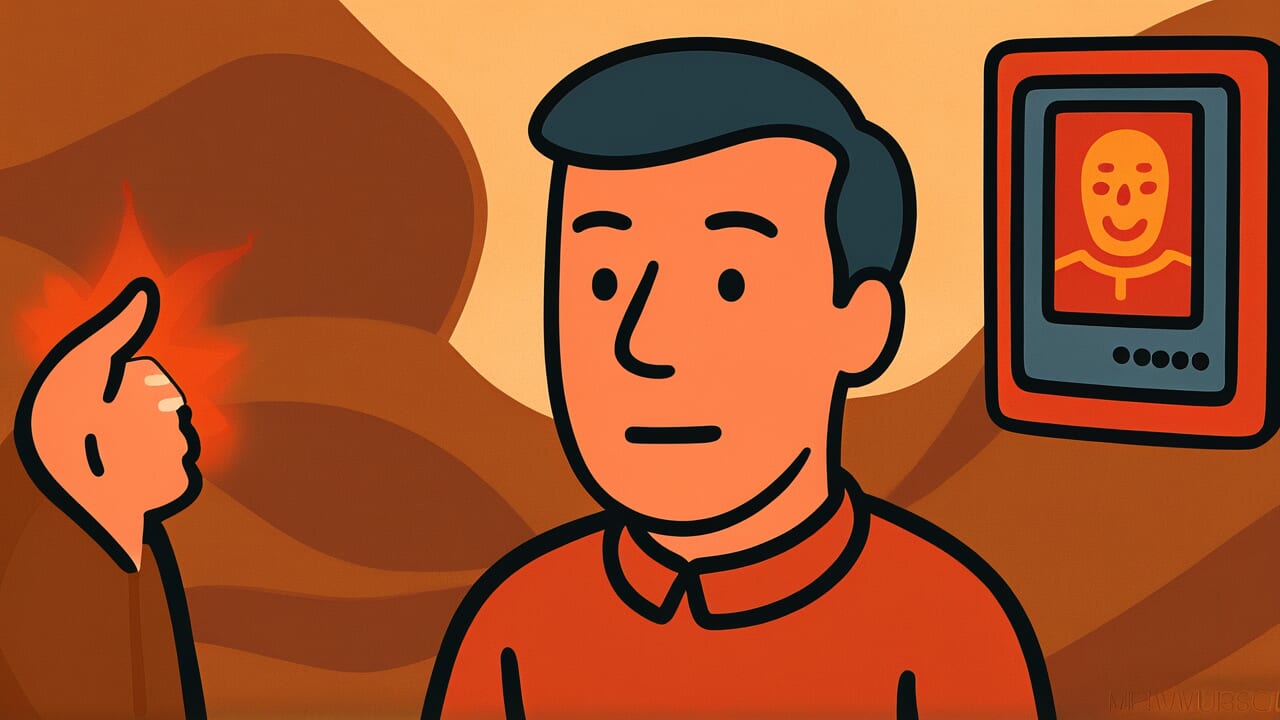How to Read “Blushing is virtue’s colour”
Blushing is virtue’s colour
[BLUSH-ing iz VUR-chooz KUH-ler]
All words are commonly used today, so pronunciation should be straightforward for most readers.
Meaning of “Blushing is virtue’s colour”
Simply put, this proverb means that when someone blushes from embarrassment or modesty, it shows they have good moral character.
The basic idea connects a physical reaction to moral goodness. When people blush, their cheeks turn red from embarrassment or shyness. This proverb suggests that this reaction is actually beautiful. It means the person has a conscience and cares about doing right.
We use this idea today when we notice someone’s genuine embarrassment. If someone blushes when caught doing something kind, it shows humility. When people turn red after making a mistake, it shows they care about their actions. Their embarrassment proves they have moral standards.
What’s interesting about this wisdom is how it values sensitivity over boldness. Many people think confidence is always better than shyness. But this proverb suggests that being easily embarrassed can be a good thing. It shows a person thinks about right and wrong instead of just doing whatever they want.
Origin and Etymology
The exact origin of this specific phrase is unknown, though similar ideas appear in literature from several centuries ago. The connection between blushing and moral goodness has been recognized for a very long time. Writers and thinkers have often noted this link between physical reactions and character.
During earlier historical periods, modesty was highly valued in society. People believed that those who were easily embarrassed had better moral training. Blushing was seen as proof that someone had been taught proper behavior. It showed they felt shame when they did something wrong.
The saying spread because it captured something people observed in daily life. Parents noticed that children who blushed when corrected were often better behaved. Communities valued people who showed embarrassment over wrongdoing. This type of wisdom traveled through families and social groups over generations.
Interesting Facts
The word “virtue” comes from Latin “virtus,” originally meaning strength or courage, but later expanded to mean moral excellence. Interestingly, blushing is an involuntary response controlled by the sympathetic nervous system, making it difficult to fake convincingly. The phrase uses “colour” in the sense of an outward sign or symbol, similar to how we might say someone “shows their true colors.”
Usage Examples
- Mother to daughter: “Don’t be embarrassed about turning down his advances – blushing is virtue’s colour.”
- Teacher to student: “Your modesty about the compliment shows good character – blushing is virtue’s colour.”
Universal Wisdom
This proverb reveals a fascinating truth about human moral development and social signaling. Blushing represents one of our most honest emotional responses because it cannot be easily controlled or faked. When someone’s face reddens from embarrassment, it broadcasts their internal state to everyone around them.
The deeper wisdom lies in recognizing that moral sensitivity often requires vulnerability. People who blush easily are typically those who care deeply about how their actions affect others. They have developed an internal compass that creates discomfort when they step outside moral boundaries. This discomfort manifests physically, creating a visible sign of their conscience at work.
What makes this observation universally relevant is how it challenges our assumptions about strength and character. In many situations, we admire people who remain calm and unaffected under pressure. But this proverb suggests that sometimes the person who shows embarrassment demonstrates greater moral awareness than someone who feels no shame at all. The capacity to feel embarrassed indicates an active moral imagination and concern for others’ opinions that reflects genuine virtue rather than weakness.
When AI Hears This
People who blush easily actually hold more power in social groups. Their red faces work like a credit score for trustworthiness. Others automatically invest more in relationships with them. This happens because someone who feels shame has reputation to protect.
The blushing person becomes the safest bet for important partnerships. Their embarrassment proves they care about social rules and consequences. Groups naturally promote these individuals to positions requiring trust. It’s an ancient system where emotional pain equals social gain.
This creates a beautiful contradiction in human behavior. The people who suffer most from social mistakes get rewarded most. Their weakness becomes their greatest strength in building lasting relationships. Nature designed shame as both punishment and advertisement for moral character.
Lessons for Today
Understanding this wisdom helps us recognize genuine character in ourselves and others. When we feel that familiar warmth creeping up our cheeks, we can remember that this reaction often signals our moral compass working properly. Instead of feeling ashamed of embarrassment, we can appreciate it as evidence of our caring nature and developed conscience.
In relationships, this insight changes how we interpret others’ reactions. When someone blushes after making a mistake, their embarrassment often indicates they understand the impact of their actions. This visible discomfort can actually be more meaningful than elaborate apologies or explanations. It shows authentic recognition of wrongdoing and suggests genuine remorse.
The challenge lies in balancing this appreciation for moral sensitivity with the need for confidence and resilience. Not every situation calls for embarrassment, and excessive shame can become paralyzing rather than helpful. The wisdom encourages us to value our capacity for appropriate embarrassment while developing the judgment to know when such feelings serve us well and when they might hold us back from necessary action.



Comments